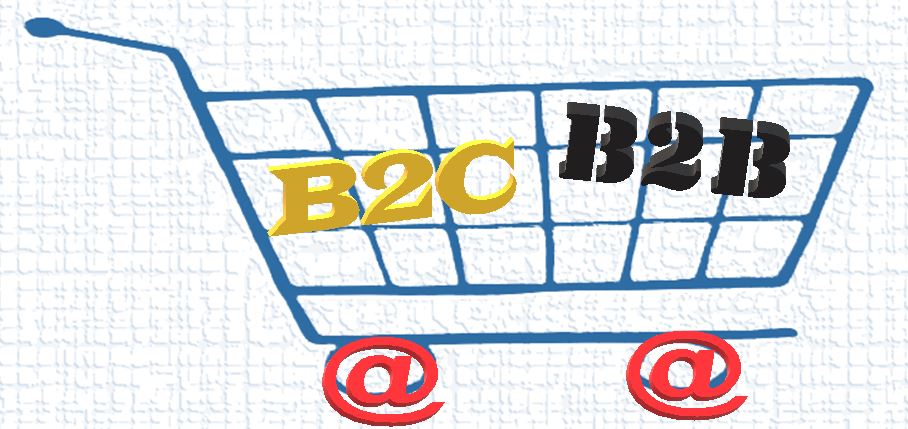
With higher penetration of internet and reach of connectivity to common man, online sales, marketing and advertisement is on the rise. Overall Online Business has grown multi-fold and is growing at an exceptional rate.
Online mode of transaction is fast taking over the traditional way of doing business because of its greater reach. The modern economy is fast moving towards digitizing payment transactions. Also, there has been a tremendous boom in the eCommerce business. Government has been active in supporting and promoting towards greater digitization of financial transactions. The two biggest tax network (GST and Income Tax) is fast moving towards lesser human intervention and more digital interface.
With the growth of eCommerce model of business, there was a greater need for regulating the sector for safeguarding customers from various factors. Government has come up with rules and taxation on the sector.
Here we will know the taxation (and fees) presently applicable on the online mode of transaction / business / operations.
1% tax for E-commerce aggregators
E-commerce aggregators* are responsible under the GST law for collecting and depositing tax at the rate of 1% from each transaction. All dealers and traders selling goods and services online would get the payment after deduction of 1% tax.
*[who are aggregators? – Aggregators are those platforms who uses unrecognized service providers to bring under their own brand and taps customer mainly through online portals to serve customers. They mostly decides price for specific service which is then followed by different service providers associated with them.
The aggregators operate in many industries. e.g. Food, Insurance, Travel, various domestic service etc]
eCommerce seller of goods :
As mentioned in our previous post https://digitalregion.in/ecommerce-seller/, every eCommerce seller of goods needs to take GST registration and file GST return as per law.
Conveyance charge (fees for making online payment):
Most of payments made through online mode attracts transaction charge. e.g. payment for electricity bills, payment of LPG during online booking, making a payment for premium on insurance or other investments online. One such example shown here for charges to be paid during investment on NPS website within a login.
[Net Banking: ₹0.60 per transaction + GST@18%; Debit Card: 0.80% of the transaction amount + GST@18%; Credit Card: 0.90% of the transaction amount + GST@18%]. Also, note that payment through debit card is only up to ₹2,000, says eNPS website… Source: https://www.livemint.com/money/personal-finance/nps-allows-you-to-invest-through-credit-cards-how-to-do-it-1565334145129.html
Transaction charges on IRCTC:
Post demonetization, Government had removed transaction charges on ticket booking through IRCTC. They used to charge Rs.20 per ticket on non air-conditioned (AC) class booking and Rs.40 per ticket for air-conditioned classes excluding service tax.
From September 1 onwards, IRCTC is planning to bring back convenience fee of Rs.15 and Rs.30 on the passengers for the booking railway tickets online for non air-conditioned classes and air-conditioned classes, respectively. Bringing back of this charge is quit understandable. Even though it is a small amount being charged to common man, this account to revenue of around Rs 500 crore per annum.
Source: https://www.business-standard.com/article/economy-policy/irctc-to-bring-back-service-charge-on-ticket-booking-from-september-1-119082300510_1.html
But in most of the transactions debit card transaction charges in India is nil.
Service tax on transaction fees:
The old service tax (which was 15%) on bank charges and online transactions has now been replaced by GST at the standard rate of 18%. This tax is applicable on the fees levied by banks on the online transactions performed by their customers.
Edit Column

Woah! I’m really loving the template/theme of this website. It’s simple, yet effective. A lot of times it’s very difficult to get that “perfect balance” between user friendliness and visual appeal. I must say that you’ve done a superb job with this. Also, the blog loads super fast for me on Firefox. Outstanding Blog!
I have recently started a site, the info you offer on this site has helped me greatly. Thanks for all of your time & work.
Hi there! This is kind of off topic but I need some guidance from an established blog. Is it tough to set up your own blog? I’m not very techincal but I can figure things out pretty fast. I’m thinking about making my own but I’m not sure where to start. Do you have any ideas or suggestions? Appreciate it
you are actually a excellent webmaster. The site loading velocity is amazing.
It kind of feels that you are doing any unique trick. Also, The contents are masterpiece.
you have performed a magnificent task in this matter!
Not to my credit. You have a very good network / wifi
Hi there to every one, for the reason that I am truly eager of reading this weblog’s post to be updated daily.
It includes good material.